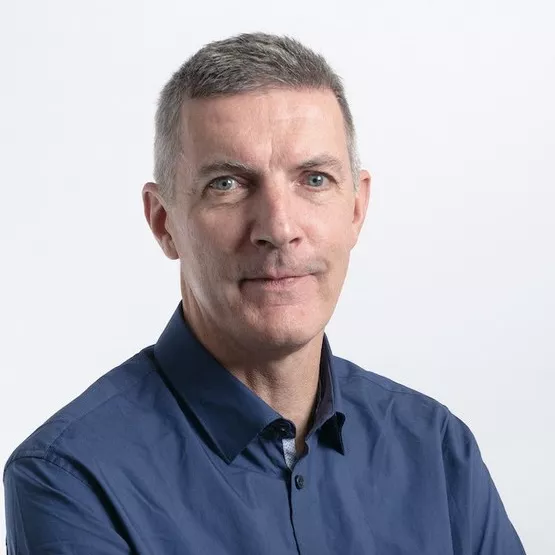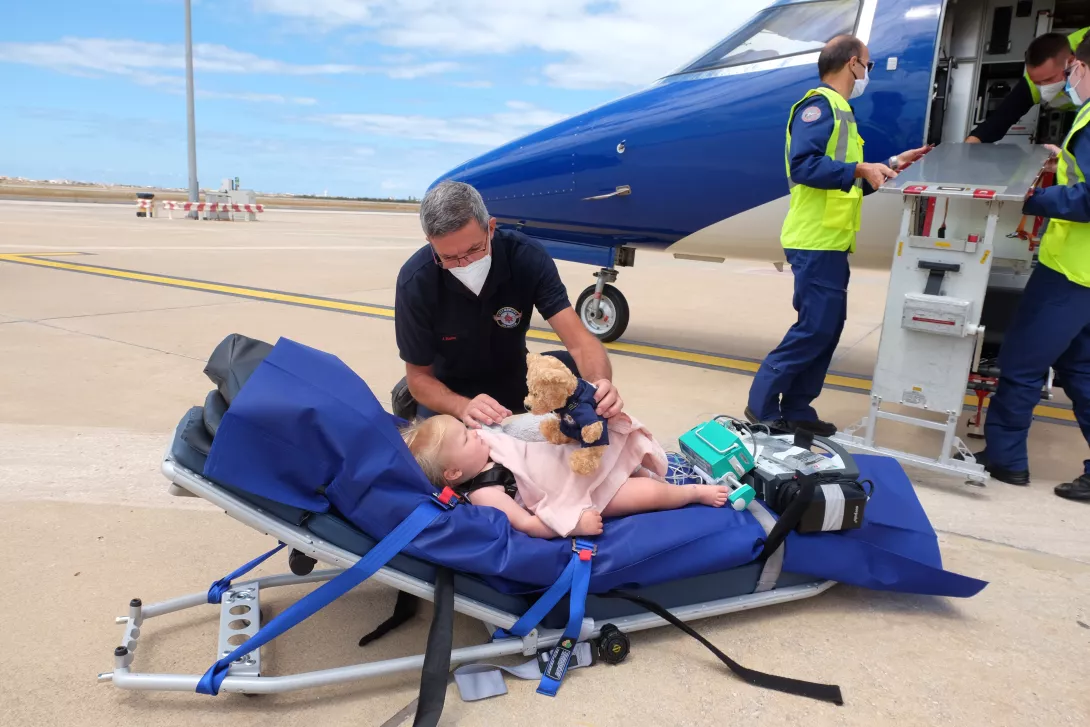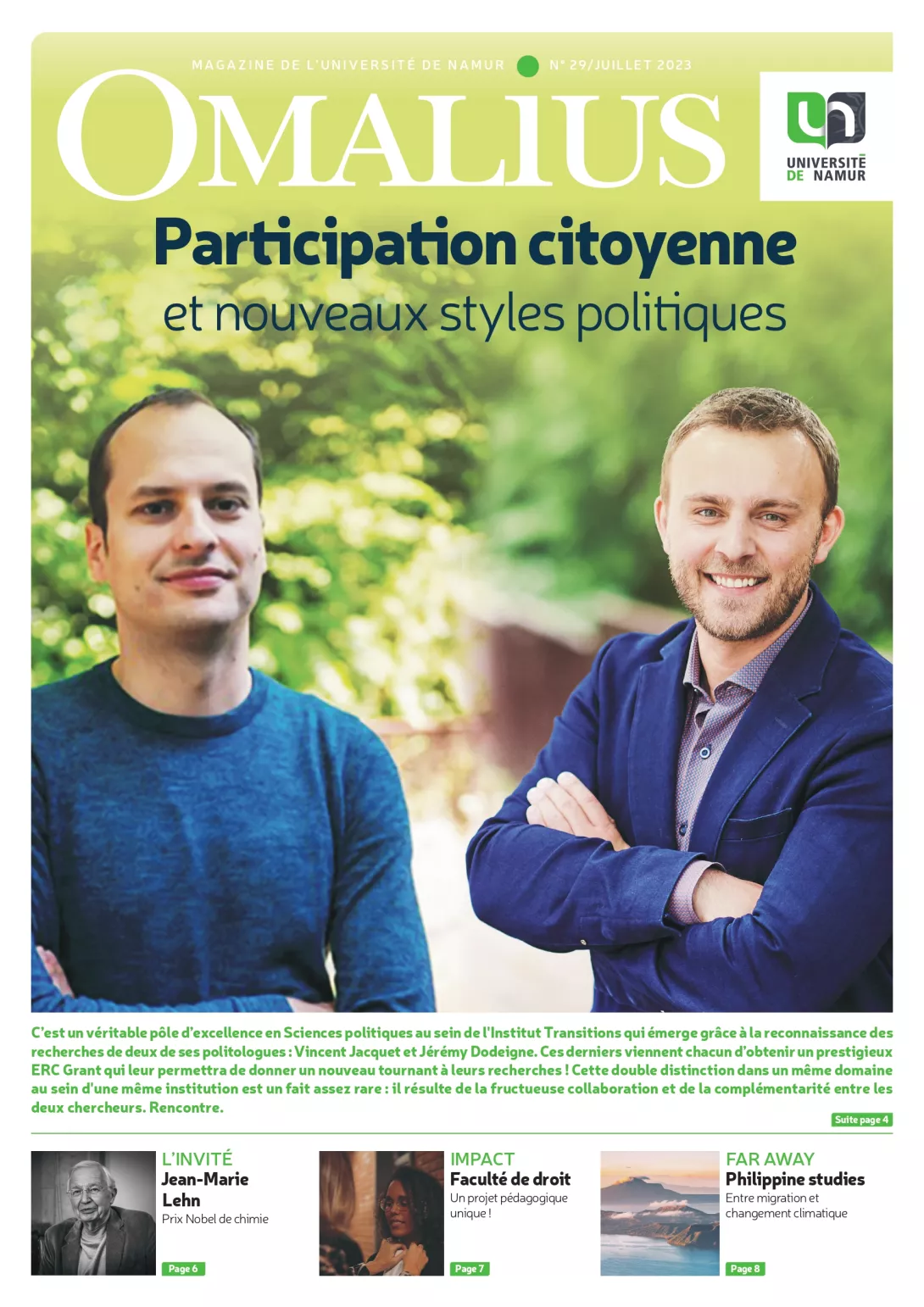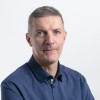This interview was conducted for the "Alumni" section of Omalius magazine #29, July 2023.
In addition to your work at the Centre hospitalier de Luxembourg, you are also a freelance doctor with the Luxembourg Air Rescue association. Can you tell us about this association?

Initially, the ASBL offered Samu-type medical transport by helicopter in Luxembourg. It then expanded internationally, using aircraft to provide private and professional insurance companies with repatriation services in various countries. The company specializes in the transfer of unstable patients in intensive care or resuscitation.
Why did you decide to reduce your hospital work to join Air Rescue?
It's the result of a long collaboration. At the hospital, I regularly worked with Air Rescue to transport children from Luxembourg to specialized hospitals in Belgium and France. A few years ago, they asked me to work with them to develop a transfer service for unstable paediatric patients, particularly neonatal patients. Few service providers can provide this service in Europe, because the standards for air transport of babies in incubators are very strict. This work is therefore part of the continuum of my intensive neonatal paediatric activity. It may be a little less acute than in hospital, but it's just as interesting.
I'm also the association's pediatric medical regulator. When an insurance company sends us a request, the first question to resolve is whether the patient is transportable and whether we have the technical and material means to do so, bearing in mind that, in some regions, I find it difficult to obtain objective or recent medical information. I then manage the action in the field. The child is transferred either from one airport to another, or from one hospital to another, or a combination of these. The logistics department then organizes the flight (routing, authorizations, appointing pilots, co-pilots and nurses, etc.) as well as ambulance transport.
Where do you operate?
In theory everywhere, but in practice I work mainly in Europe and North Africa. Eastern Siberia was my furthest destination with the incubator. Before the COVID crisis, I was doing about one shipment a week. We're currently in a recovery phase, with a fleet that's being renewed. So I'm flying less for the moment.
Do you also operate in war-torn countries like Ukraine?
No, because the association doesn't want to put its employees in danger. That said, an association that performs surgery in the Ukraine had operated on children with heart defects. They asked us to transfer one of these children. So they took him to Poland, not far from the border, where we went to pick him up. It was quite impressive, but it was on Polish territory.

You are confronted with very different realities, particularly when it comes to patient care. What strikes you most?
There are two categories of repatriation. Many babies are in areas where resources are sufficient to ensure a minimum of care. And then, sometimes we have to go and get a child who is in an area where care is more limited, and where the risk of transport may be less than staying on the spot. Seeing the difference in means helps to put into perspective the frustrations we may have at home. We're really spoiled, whether in Belgium or Luxembourg. We just don't always realize it.
You set up a Médecin du Monde branch in Luxembourg. Why did you do this?
We started from the observation that in Luxembourg, as elsewhere, there are people living in precarious conditions who have no access to healthcare. So we began by following and treating patients on the street. Then, armed with documentation from the field, we called on the public authorities to set up initiatives to support these people in difficulty. It was an extremely rich experience. Somewhat in spite of myself, I found myself at the head of the Board of Directors. I've learned a lot and rubbed shoulders with people of high calibre and diverse backgrounds, from lawyers and financiers to communications specialists.
What advice would you give to young people who want to go into medicine?
When I look at my own career path, or that of others, I feel like telling them to keep their doors and eyes open. You start out in medicine because you want to become a surgeon or do cancer research. And then, depending on who you meet, your choices can be completely different. Having fixed ideas limits the field of possibility. This open-mindedness is absolutely essential.
What do you remember about your time at the University of Namur?
Two words come to mind: rigor and high standards. It gave us strength. We realized that we had received a solid basic training in Namur, which enabled us to move forward without fear or difficulty at UCLouvain. I really appreciated that and still do today.
Do you have a particular anecdote to tell us?
There's one that comes to mind. We used to crowd into Father Bauchau's animal biology classes. There were students from other faculties, even lawyers, so fascinating was the course. It was a real show that I'll never forget, thanks to Professor Bauchau's talent. It was extraordinary. He could have been called One Man Baushow!
A brief history
1980 - 1983: Candidature in medicine at the University of Namur
1983-1987: Doctorate in medicine at UCLouvain
1987-1992: Specialization in pediatrics and neonatology at UCLouvain
1991-1992: Neonatology training at the Hospital for Sick Children, University of Toronto
1992-1998: Pediatric neonatologist at the Grand Hôpital de Charleroi
1996-1998: Lecturer in neonatology at the Haute École Louvain en Hainaut
Since 1999: Neonatologist at Centre hospitalier de Luxembourg
Since 2015: Pediatric and neonatology referent, then medical referent for Luxembourg Air Rescue/Luxembourg Air Ambulance
Omalius
This article was extracted from issue #29 of the Omalius magazine (July 2023).

